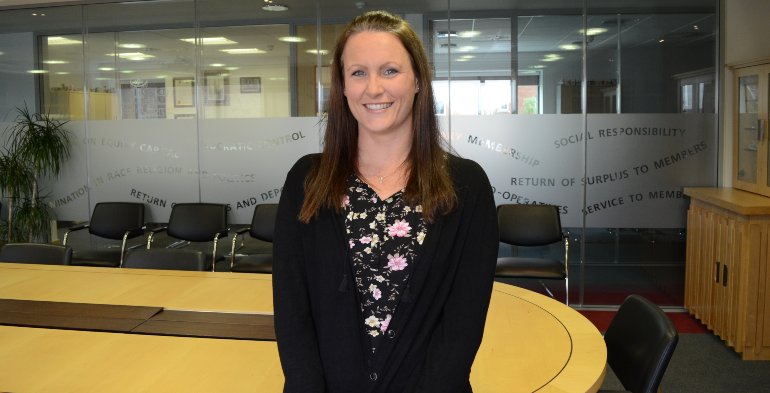HSSCU Climate Ambassador: 'How to Make Change.'
Community
3
min read
26 Mar 2021

Saturday, March 27th, marks #EarthHour2021 - the world’s largest grassroots initiative to promote positive environmental impact.
We sat down with Christine Barretto, a Health Services Staffs Credit Union board member and Climate Ambassador, who has brought her expertise and passion for the environment, to her credit union.
As well as working on sustainable projects with the HSSCU - which involve plans to install a living roof on their city centre office to promote biodiversity - Christine served as a Climate Ambassador in her spare time, giving public speeches to raise awareness of the critical nature of the climate crisis.
She also manages an environmental group and an environmental network in South Dublin, is on the organising committee of Tidy Towns, volunteers for river clean-ups, and attends environmental protests.
Last year, the environmentalist spoke at the National Credit Union Youth Conference, highlighting key areas where she thinks change can be made - as well as why credit unions, as Co-Ops, need to collaborate to promote sustainability in their communities.
‘The ethos of a co-op, of the credit union movement, is the collective. We need to think together to make real changes.’
Financial Inclusion
Christine travelled to Gambia with the Foundation, a credit union supported charity that provides access to affordable, ethical savings and loans to those in developing countries. While there, she saw first-hand their work in the area of financial inclusion - one of the credit union’s main purposes - which she says is key to help developing countries fight climate change.
‘Eleven of the seventeen lowest emitting carbon countries are the poorest in world. People causing most damage are the ones feeling the affect least. There’s a real imbalance for financial institutions in terms of climate change.’
Small Changes, Conscious Decisions
Christine also gave practical advice for organisations and individuals on how they can make a difference:
“It’s all about the small changes. The first step is to talk about it, and educate each other. Encourage someone who’s trying to make an effort. There’s no need to isolate each other; credit unions and individuals can make changes with a practical approach, and smaller steps – like planting native flowers, plants or trees, or aiming for a zero-waste work environment.’
‘It boils down to being more conscious when making decisions – for example if you’re buying apples; and one is from Spain and the other from Brazil – choose the one closer to home. Dispose of waste properly – what lands up in the rivers, ends up in the ocean, and in turn, our food.’
So, what are her key takeaways for those who want to make a difference?
1. Buy locally, mindfully, and in moderation
2. Try to offset your carbon footprint by reducing your use of cars and planes. If you need to fly, think about planting a tree or making a contribution to offset. Or reduce your usual transatlantic flights by one.
3. Invest in green energy by switching to electric vehicles or solar energy
4. Reduce the amount of red meat you eat i.e. ‘Meat Free Monday.
5. Reduce. Reuse. Recycle.
6. Gift experiences not things.
7. The motto I try to live by is simple and one directly from the biggest environmental influencer of our time David Attenborough, "if you do just one thing….dont waste."
Credit unions are a different type of financial institution. They are not-for-profit democratic financial cooperatives owned by all of their members. Every member over 16 has a vote at their local credit union AGM, and any surplus income is used to develop new and existing services or it is distributed among members in the form of dividends to savers or interest rebates to borrowers.
For more information on how to get involved with your local credit union, click here. For more information on Earth Hour, and how you can get involved, click here.